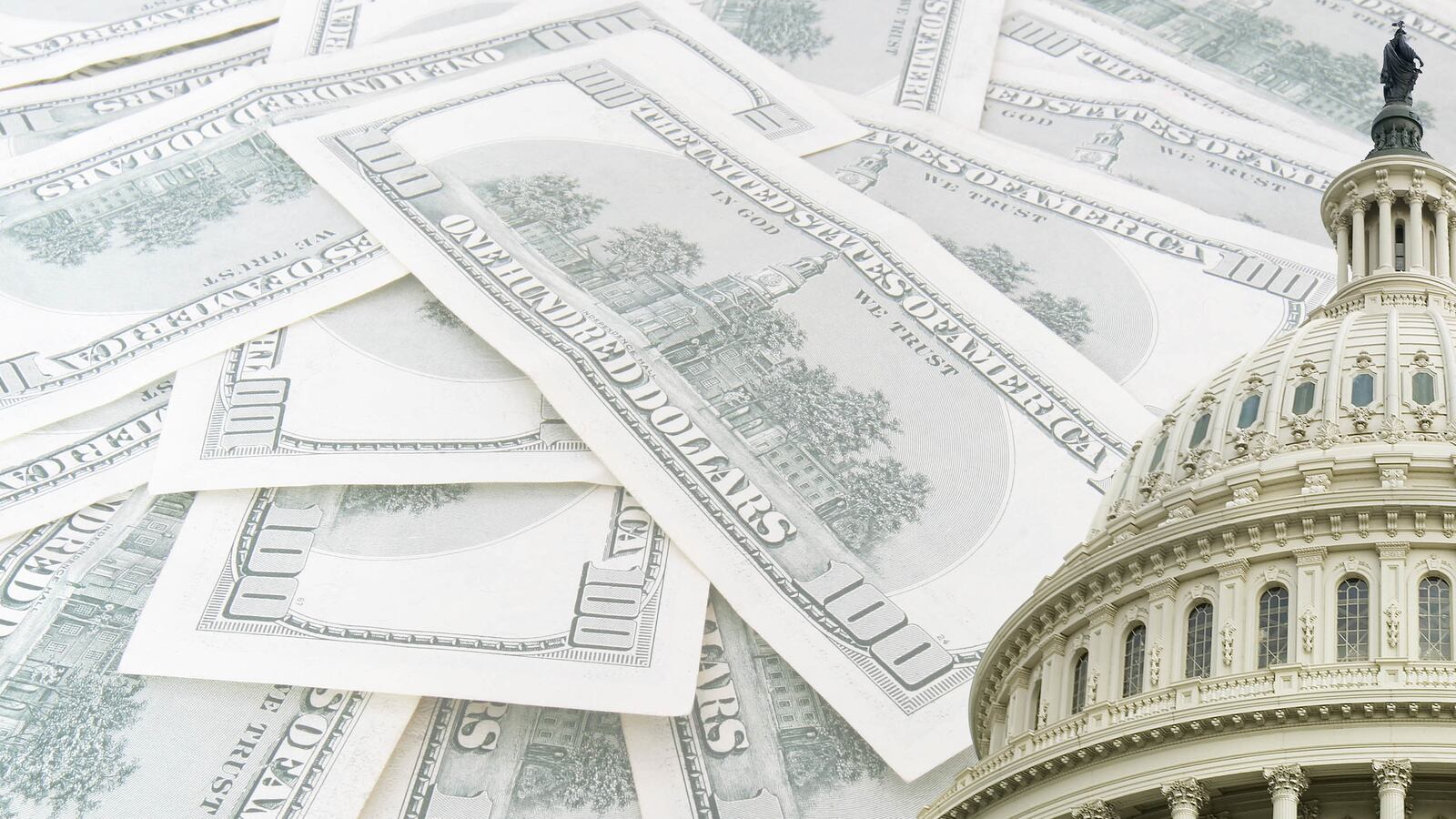Money alone can't win an election. But it sure does help.
If you’re worried about the amount of money campaigns and political action committees are spending to win elections, take heart: You’re not alone. You’re part of a very, very small group of people incensed about the rise of corporate contributions and dark money in American elections. A small, frustrated, largely hopeless group of people, folks obsessed with a vitally important issue that leaves the vast majority of the country cold.
Ask people if they believe elections should be controlled by corporations and a handful of wealthy individuals, and the answer is invariably “no.” But here’s the thing: Most of them don’t believe things can really change. There’s a certain weary cynicism in the American electorate, a belief that the system is rigged. Of course billionaires pull the strings. That’s just how it is.
Maybe campaign finance reform needs rebranding. We could call it “Clean Politics” or “Open Elections.” Add a mascot (“Apathy Andy”?) or maybe a catchy jingle, something people can relate to. Whatever it takes, we need to find a way to get voters excited about cleaning up political spending before we go full oligarchy.
Otherwise, because campaign finance reform is such a dry topic, we’re not likely to see the kind of sustained activism and outrage that could push lawmakers to pass a few (relatively) simple pieces of legislation that could simplify the campaign finance system, limit the impact of corporate and undisclosed donors, and—I realize this is optimism, here—possibly restore a modicum of faith in our political process.
Election spending has grown astronomically over the last four years, from a record-breaking $4 billion in the 2010 midterm elections to that even-more-record-breaking $7 billion in the 2012 federal election. The 2014 midterms are on track to, you guessed it, break records—spending to date is up three times compared to this point in the 2010 election cycle.
Let’s put those numbers in perspective: For $7 billion, you could run the state of New Mexico for a year, send a manned mission to Mars on the cheap, buy all the electricity in Hawaii. Put the last four years of campaign spending together, and you could build Dubai’s Palms Island (and maybe stop it from sinking, to boot).
These are obscene amounts of cash.
Yet campaigns, parties and political action committees are squandering these ever-increasing sums in a game of political one-upsmanship in which every campaign is obliged to outspend the other, and feeding the funding machine becomes a job almost as important as legislating.
This meteoric rise in campaign spending is fueled largely by a 2010 U.S. Supreme Court ruling, abetted by a devil’s handshake between super political action committees and the U.S. Tax Code. The Supreme Court’s Citizens United decision (the first step on the court-driven march toward corporate personhood) removed caps on corporate spending in campaigns, causing the super PAC to become a dominant force in election spending.
Where it gets tricky is with the inclusion of 501(c)4s. That’s a kind of nonprofit created under a section of the U.S. Tax Code that’s allowed to spend on political causes, as opposed to 501(c)3s like your local food bank or homeless shelter. The IRS doesn’t require 501(c)4s to disclose donors, and because of the IRS’ reporting timeline, a new 501(c)4 (you know, the kind created as a front to drop dark money into a campaign) financial statements might not be submitted until nearly a year after an election has occured. Donors can pour money into a 501(c)4, with surety their names won’t become public, and the nonprofit can donate to a super PAC. It’s the perfect vehicle for wealthy donors who want to occlude their participation in the political process, and if you think this is House of Cards stuff, rest assured, it happens.
Here’s how Congress could start to fix things: Create a more robust public funding system to support federal elections. Limit corporate spending allowed by the Supreme Court’s Citizens United ruling. Require real-time disclosure of contributions. Require 501(c)4 nonprofits to disclose donors, if those contributions are supporting political campaigns or political action committees.
These are, in mechanical terms, simple fixes; politically, a nigh-impossible slog. Because, of course, the lawmakers who’d have to take action are generally the beneficiaries of the system—and because constituent apathy means there’s no incentive to push change.
Lawmakers could prove their constituents wrong. Will they? It’s a $7 billion question.





